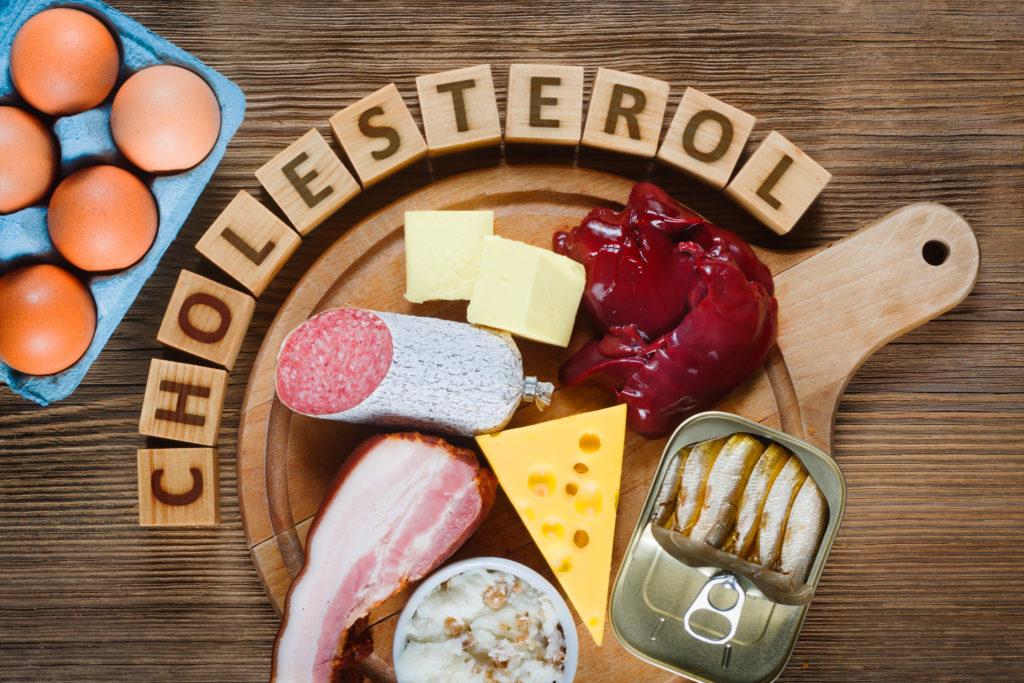The 411 on Cholesterol

Popular opinion tells you that cholesterol is bad, but that is not necessarily the case. Cholesterol is essentially good and necessary for your body to function properly. For example, cholesterol plays a major role in the formation of body cells and in the production of vitamin D, which is an essential vitamin needed for maintaining good eye health, as well as for other biological processes.
Why does everyone worry about their cholesterol if it is good?
As with most things in life, moderation and balance are key to maintaining stability. When cholesterol is present in the blood at high levels, that is when there is a problem. This is because high levels of cholesterol can form a build up in the bloodstream causing a blockage in the arteries and therefore reducing the volume of blood that can pass through that blocked region at any given time. For this reason, more pressure is needed to pump blood past such blocked arteries and overtime, heart complications such as high blood pressure and other heart diseases may arise.
Now, there are different types of cholesterol of which two are common: low-density lipoproteins (LDL) and high-density lipoproteins (HDL). Lipoproteins are combinations of cholesterol and proteins that are needed to transport cholesterol through the blood. LDL is a bad type of cholesterol – this is because LDL transports excess cholesterol to every part of the body, even when it is unnecessary, causing a blockage as mentioned previously. HDL is a good type of cholesterol because it cleans up the excess cholesterol from the bloodstream by taking the cholesterol back to the liver for proper breakdown and further excretion.
Why stress about high cholesterol levels if HDL’s help?
HDL’s can only do as much as clearing the bloodstream, however if the cholesterol level is very high and there is a high presence of LDL’s, then the work of the HDL’s will become insignificant over time.
This is why our lifestyle choices matter. Lifestyle habits and risk factors such as smoking, poor dieting, lack of exercise, diabetes, obesity, and unavoidably age can lead to the presence of high cholesterol levels in the body. Managing our health is a great step to help control the cholesterol levels, even if they are purely hereditary.
How do you help prevent rising cholesterol levels?
Here is how to prevent high cholesterol levels and the complications that could arise from having them in your body:
- Eat a low sodium diet.
- Consume lots of fruits, vegetables, nuts, and whole grains.
- Avoid eating saturated fat – which is found in animal biproducts, and trans fats – present in some commercially baked cookies, crackers, and microwave popcorn. Red meat and full-fat dairy products will also increase your cholesterol. Consume good fats in moderation.
- Maintain a body massage index (BMI) lower than 30. Consult with your primary care physician if you are trying to lose weight, if your BMI is 30 and above. A healthy weight can often times be characterized by a BMI lower than 30.
- Quit smoking. This is a major key to staying health. Check out our previous blog post about kicking this bad habit!
- Exercise regularly. A minimum of 30 minutes of exercise on most days of the week can improve your body’s metabolism and cholesterol regulation.
- If you want to drink alcohol, do so in moderation. It is the best practice to avoid or decrease alcohol intake.
- Manage stress. Stress can be tough on your body’s ability to function properly.
As always, Dr. Dharia and his team at Palm Beach Internal Medicine are here to help! Contact them if you or a loved one is struggling with cholesterol levels. They will build a custom medical plan to help you move in the right direction.
